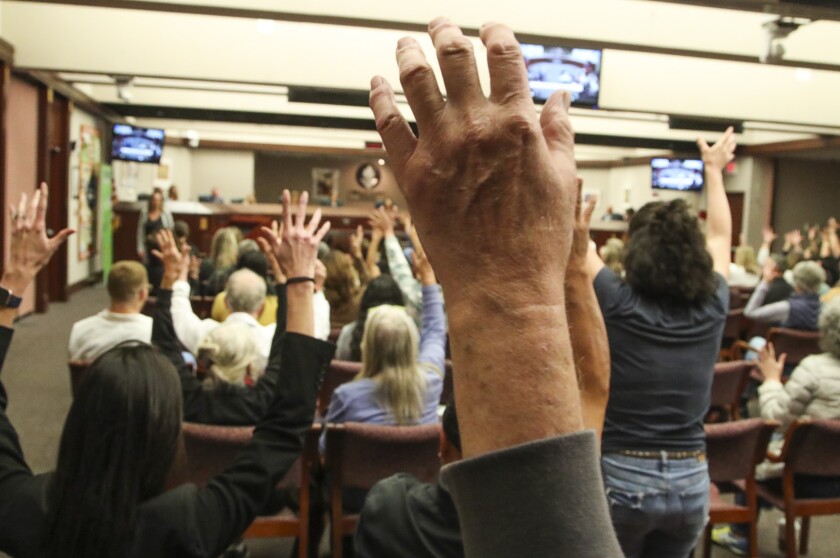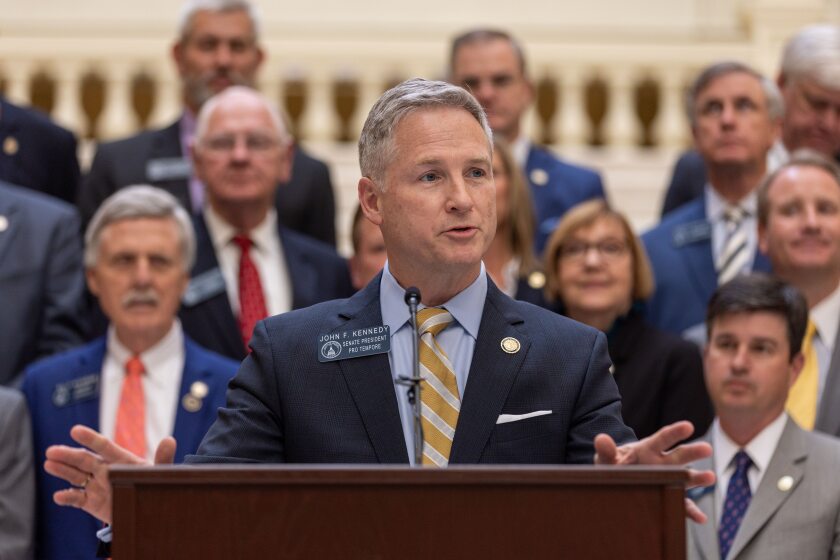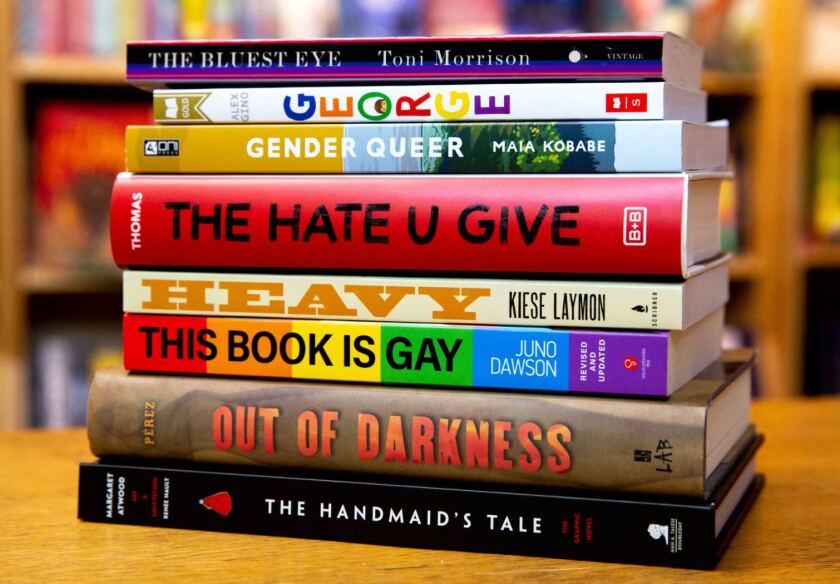The bill removed schools and libraries from a law that exempts certain institutions from prosecution for giving a minor material that’s “claimed to be obscene.” If that sounds familiar, it’s because Idaho lawmakers tried to do the same thing last year.
Idaho House Bill 666 would have removed a similar exemption for librarians in Idaho code, but the legislation failed. House Bill 314, from this year, would have made librarians liable for civil lawsuits for handing out “harmful material.” It also failed, after Idaho Gov. Brad Little vetoed it. A House attempt to override the veto fell one vote short.
The Idaho effort is part of a broader push to restrict access to library books — many with LGBTQ+ themes — or target the people responsible for collecting them.
Republicans in 19 other states have proposed legislation similar to Idaho’s, according to EveryLibrary, the Chicago-based political action committee for libraries. The group typically helps local libraries with ballot measures, like bond elections, but lately it has focused on fighting “onerous” legislation that targets books and librarians, executive director John Chrastka said.
While much of the effort to restrict library materials has been homegrown, several states have proposed similar legislation, Chrastka told the Idaho Statesman by phone. And even in states, like Idaho, that have yet to pass a bill targeting libraries, the charged atmosphere has had a significant “chilling effect” on librarians and the broader culture of reading.
“If you’re feeling like every decision is going to be not just second-guessed but dragged out in front of the public, for reasons that are really more about the culture war than they are about the content of the title, it does chill things,” he said.
How Library Bills are Similar in Other States
Every state is responsible for its own criminal code, so efforts to criminalize librarians or restrict books have looked different.
Proposals in Iowa and Minnesota included civil penalties similar to the provision in Idaho’s House Bill 314 that would have allowed parents to sue their child’s library for $2,000.
The proposals are coming from several directions, Chrastka said. Some are backed by anti-education, anti-union or anti-government groups that may have narrow views on LGBTQ+ identities and outdated thoughts on race, he said. Other proponents of the restrictions are “sincerely panicked” by sex education and gender studies, he said.
Many states that are pursuing library laws have also produced other types of legislation that target LGBTQ+ and abortion rights or support school vouchers amid a broader push to privatize education, Chrastka said.
“It seems to be a whole-cloth approach,” he said. “While the structure of the bills between the states has similar goals, they’ve tended to actually be much more homegrown than I would have thought.”
Coalitions of parents, like Utah Parents United, Purple for Parents of Indiana and Moms for Liberty in Florida, are leading efforts to limit access to books in their libraries.
Some states – like Florida – have limited which books are available in schools, making it “nearly impossible” to buy a book as a school librarian, Chrastka said.
“The collections are already old. School libraries are not well-funded to begin with,” he said. “It just becomes further and further away from useful for the kids, both for reading for enjoyment as well as for research and for scholarship.”
In Idaho, the Family Policy Center, a religious lobbying group, urged state lawmakers to pass House bills 314 and 666. But there have been local efforts, as well. Dozens of Meridian residents recently petitioned to dissolve their library district after the library board rejected their calls to remove books.
While calls for book restrictions have come from various groups and individuals across the country, the goals have been similar: “Either limit access to the collection for the public,” Chrastka said, “or put a target on the back of librarians and educators who are responsible for the books.”
Rep. Jaron Crane, R- Nampa, and Sen. Cindy Carlson, R- Riggins, who co-sponsored House Bill 314, didn’t immediately respond to requests for comment Friday.
Idaho Library Issue is Unsettled
The issue isn’t going away in Idaho. There will bill another library bill next legislative session, Little recently told reporters.
Before that surfaces, lawmakers should work with librarians to “see what we can do collectively to not have this come back,” Little said earlier this month.
“We shouldn’t have pornography readily available in the kids section in libraries,” he said. “If the libraries do the right thing, hopefully it won’t come back with the velocity it had this year.”
Senate President Pro Tem Chuck Winder, R- Boise, who co-sponsored House Bill 314, said there probably is a “reasonable solution,” but he doesn’t know what it is.
“I haven’t heard anybody talk about wanting to censor or remove books, per se,” Winder told the Statesman by phone. “They just want them more age appropriate, more adult supervision.”
The Idaho Library Association celebrated Little’s veto of House Bill 314. Lance McGrath, president of the association, told the Statesman that he hasn’t met with lawmakers yet regarding a future bill. But the association is urging its local library officials to meet with their lawmakers to discuss concerns about material.
“That’s what we said all along during the legislative session, and we haven’t changed that position at all,” McGrath said by phone. “(It’s) always better to handle that locally, if you can, and avoid that unnecessary legislation.”
Meanwhile, discussions at the Legislature have spurred school and library officials to preemptively limit access to books.
In February, the Kuna School District placed 25 books on its “behind the shelf” policy, which means that students need parental permission to check them out.
Last week, Ada Community Library’s board voted to remove from its collection six books that Idaho law would classify as “harmful to minors,” even though libraries are exempt from the law. The decision later was nullified because board members voted in violation of Idaho’s open meeting law.
The Library Association is recommending that libraries review their practices, but claims that libraries are distributing pornography are “unfounded,” McGrath said.
“LGBTQ or sexual content that’s age appropriate is not porn, it’s not obscenity,” he said. “Iheard this said the other day and I agree with it wholeheartedly: ‘Identities are not obscenities.’”
©2023 The Idaho Statesman. Distributed by Tribune Content Agency, LLC.
Related Articles












